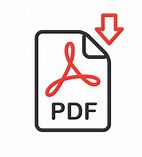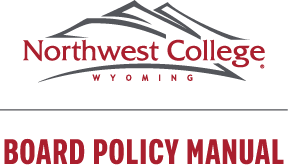To print please use PDF download.
I. Professional Development and Travel Funds through Divisions
The purpose of the Professional Development and Travel Fund is to promote professional growth opportunities for faculty. The College seeks to assist faculty members in meeting the expenses likely to accompany opportunities for professional growth such as conferences, workshops, study, course-related activities, etc. The target for this amount would be equivalent potentially to no more than the cost of a three-credit adjunct instructor replacement typically expended by the faculty member within a three-year rotation.
Each year the Vice President for Academic Affairs shall allocate to the divisions an amount of money based on the number of full-time faculty in the division in proportion to the total number of full-time faculty of the College and notify division members of the amount. The divisions themselves determine how to allocate the money available to them, subject to the review and approval of the Vice President for Academic Affairs.
Faculty may obtain “Professional Development & Articulation Travel” forms from the Vice President for Academic Affairs’ office. Faculty must return the completed form, with the Division Chair’s signature affixed, to the Vice President for Academic Affairs for approval.
Upon completion of the professional development activity, faculty shall submit receipts for all expenses and a written Travel Report to the Vice President for Academic Affairs (copied to the Division Chair). The Report should briefly summarize the travel, what was learned, and how the information can be used by the faculty member and faculty member’s program to enhance student learning. The report shall be filed in the faculty member’s evaluative file.
II. Committee on Faculty Development and Morale
The Committee on Faculty Development and Morale shall consist of five faculty members nominated and elected by the Faculty Organization during the spring.
The Vice President for Academic Affairs shall transmit the annual allocation to the Committee on Faculty Development and Morale’s current fund account at the beginning of the fall semester and shall be responsible for fiscal oversight. Development funds shall not be mixed with funds used for social functions organized by the Committee for the Faculty Organization. The College encourages the Committee on Faculty Development and Morale to solicit input from individual faculty members, the academic divisions, the Vice President for Academic Affairs, and the President prior to the awarding of grant proposals.
The Committee on Faculty Development and Morale may solicit additional funding from outside sources. The College Business Office shall place these solicited monies in an agency account or within an appropriate Northwest College Foundation Account.
- Procedures
Faculty members or faculty groups may submit proposals to the Committee on Faculty Development and Morale in accordance with procedures established by the Committee. During two annual granting periods, the Committee shall accept applications no more than one year in advance of anticipated work:- November 1: application deadline
- December 1: grants awarded
- April 1: application deadline
- May 1: grants awarded
The Committee on Faculty Development and Morale shall notify the applicants, the Division Chairs, the Vice President for Academic Affairs, and the College President of its awards. The Committee shall report to the faculty and the administration the results of its deliberations when they award grants.
Individuals or groups submitting grant proposals for reassigned time or absence from campus must provide details of solutions for faculty replacement, salary, and duties. The appropriate Division Chair must approve the released time grant proposals prior to submission. If the released time grant proposal review is successful, the Committee on Faculty Development and Morale shall make a recommendation to the Vice President for Academic Affairs; final approval rests with the President.
Approved proposals shall proceed with funds provided. The Committee on Faculty Development and Morale may request progress reports. The Committee shall conduct an evaluation process according to agreed-upon evaluative guidelines. - Proposals
The Committee on Faculty Development and Morale shall award development grants competitively. The main criterion for judging applications and proposals shall be the potential for positive professional growth. The Committee shall judge grant proposals on the following additional criteria:
- Ability to meet a professional need.
- Benefits of proposal for the institution and the faculty member.
- Method of evaluating grant activity.
- Budgetary considerations.
The Committee on Faculty Development and Morale may not be able to fund all worthy requests.
The Committee on Faculty Development and Morale has considerable discretion in assessing developmental grant proposals. Possible areas include, but are not necessarily limited to, the following:- Grants for curriculum or instructional activities such as revising or creating courses.
- Grants for workshops, short courses, or conferences including those attended or conducted by College faculty members.
- Grants to supplement or initiate exchange programs (considerations for extraordinary travel costs incurred in this instance would be a likely justification in the proposal).
- Grants for tuition payment for additional education. If a tuition (or partial tuition) grant is made, the faculty member shall not advance on the salary schedule for the credits earned. Information on horizontal advancement is provided in policy 3500 “Salary.”
- Grants to purchase non-classroom instructional materials (which become the property of the College).
- Reassigned time for faculty development purposes (replacement cost).
- Activities
The Committee on Faculty Development and Morale shall plan and coordinate developmental activities designed to provide information about instructional improvement and materials.
The Committee on Faculty Development and Morale and the Vice President for Academic Affairs shall share the responsibility for the development, planning, and execution of new faculty orientation.
The Committee on Faculty Development and Morale may make an annual award to a faculty member in recognition of professional contributions.
The Committee on Faculty Development and Morale may institute such other programs and activities as it deems necessary to accomplish its mandate.
All faculty are expected to remain current in their field(s) of expertise, to improve their teaching, to address the changing needs of students, and to adopt new instructional technologies when appropriate. The College therefore encourages a Peer Mentoring System, from which all faculty can benefit and to which all faculty can contribute. Priority for mentoring shall be given to new faculty, those faculty who are experiencing significant program revision, and those who identify their personal or professional need for renewal. Peer Mentoring is a faculty-run, non-hierarchical, faculty-based program.

